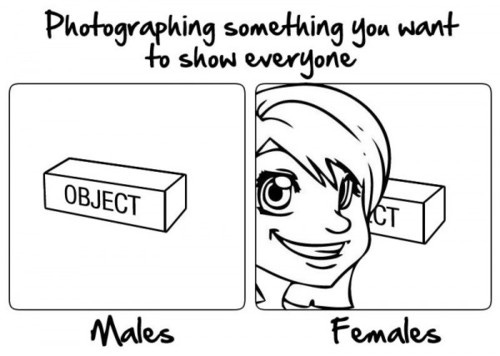The NPC Question 4: I Have No Mind and I Must Think
Social media performance as externalized internal monologue
The contemporary idea of the “NPC” was created in response to the discovery of people self-reporting a lacking of “internal monologue”, as well as the shape-rotation/wordcel distinction. I covered the latter in the previous chapters, in my concept of 2 and 3 dimensional thinking. Here I aim to explains the reported lack of inner monologue.
Ten years ago, I discovered that I could “think better” - faster, more efficient, not just repeating myself over and over in my head - by the physical act of writing. When writing, I would naturally structure my thoughts and get from point a to b, where if I attempted to just “Think” about my situation, I would literally repeat the same sentance in my head for up to hours at a time, over and over and over, never progressing.
At the time I attributed this to my particular situation of having minor brain damage in my frontal lobe, in the language part of the brain. I considered this “externalising the process of cognition, because I, through historical physical happenstance, brain damage, happen to have a poor internal cognition. But I can sort of cheat the system by externalising the process and ‘thinking with my hands’, which allows me to bypass the poor brain matter through a detour in the nervous system and the body”.
Today I don’t think this is quite accurate, and I have become a lot more efficient at thinking in my head in the traditional sense, mainly after spending less time on the computer on a daily basis. But I do think it helps to explain the following: Today everyone who owns a smart phone have been turned effectively brain damaged.
Mcluhan makes the distinction between the “literate man” and the man of electronic media. I say, the disction can literally be described as brain damage. This is not a metaphor. It literally damages the brain. Transhumanism is biological degredation with fancy branding. The global village and neo-tribalism is literally a result of everyone being turned brain damaged by global distribution of smartphones and the internet.
It is general folk-knowledge that there are some people who “have to talk to think” - we’ve all met them, the people who are non-stop verbal, who get on your nerves chattering about nothing all day, who cannot stomach silence. Most of the idea of talk therapy and all its offshoots are based on this personality type. It’s not such a foreign concept, we just need to locate and define it.
When I see, as for example in the original “car rant” videos of my first essay on this whole subject, people recording themselves in cars, ranting and rawing about something, I think they are doing exactly what I did when I started writing: externalising the process of cognition. But instead of writing, or even “talking to think”, this is a genuine new phenomenon, of “social media performance”, which is neither writing nor talking.
The social media performance, the act of recording yourself, uploading it, and recieving “reactions”, is a long, slow, externalised process of cognition for these people, because they are, for whatever reason, uncomfortable with internal reflection. The use of this technology makes you weaker over time, and more dependant on it, so that if you only dabble in the internet for fun, but are otherwise a strong ego capable of self-reflection, you will gradually become less so, if you dont take active precautions to prevent it. In part, the social media performance is outsourcing some or all of the work of cognition to “the group”, with all that entails. The reason these people end up being “npcs”, is because there is actually no such group.
In real fleshworld “social performance”, in stage performance in particular, there is a kind of ego death, of losing yourself to the music, the moment, as Eminem would say. I called this “you start doing this for them, and not doing it for Yourself” in the previous chapters. This aspect is totally absent in the Internet performance, the social media performance, and I claim, this is by explicit design.
As a simple, and honestly elegant, design and engineering choice, the back camera on a smartphone actively prevent you from learning “stagecraft” - whatever small lessons there are there - by making sure you are always-also performing for yourself. I referred to this earlier as “not only must you put on an act, but you must also buy your own bullshit”.
The selfie “culture” enabled by this technology is directly, causally infantilizing, because it encourages that you “buy your own act”. The Narcissus myth shows us we have known about this for thousands of years - you can't be yourself while you're looking at yourself. Self-awareness, so-called, is apparently alienating. How can this be?
On the surface this seems like a paradox, that one is alienated by looking at oneself. But it is exactly looking at yourself performing actions which under normal circumstances makes you forget yourself. The camera makes you at once audience and performer, not merely performer. This is a difference between social media performance and traditional real life performance.
Seeing yourself, you are aware that you are putting on a social act, but due to our cultural felt demands of “authenticity”, as well as the direct demands of social media (to always look "good", strong, perfect, etc) - all of the above could be categorized under a blanket “signalling virtue” - the mere act of seeing yourself, is seeing yourself fail (by “acting” and not “being yourself”), and thus, seeing yourself lie. The very action of participating in signalling virtue, playing by the “rules” of social media, is to watch yourself fail at being virtuous, in real time. An irreconsileable position.
The direct experience is irreconcilable to the demands it purports to solve: Self expression, self discovery. The moment you open your mouth, you know, with supernatural, pre-rational certainty, "out of everything I might be, the only thing I know I'm not, is what I'm trying to pretend i am right now, because I’m looking at my own damn face and I can tell I’m a big fat liar".
Or simply, animalistically, "that's not me". If you want to stop crying, look in a mirror. It’s impossible to cry while being self aware, because losing yourself to the Big Cry is giving up on appearances.
In my sphere framework, the camera turns the act of objectifying yourself into it’s inverse: super-subjectivizing yourself. Rather than stepping out of the private sphere and into the greater abstract public, losing yourself in the process, you are trying to fit yourself-as-object into your own private sphere. scaling the world down, not yourself.
The real tragedy of the dysfunctional system we’ve set up for ourselves is, ultimately no one is watching these performances we all put on - we don’t watch each others performances, but, we are rather “watching ourselves watch them”, in our own self-performance of “watching”. This is what “reaction” youtube videos are all about.
When I say “social media performance” I am referring both to the literal tiktok self-recording, which is the most direct agreggious and tragic example, but also to the more innocous traditional “posting” in writing. My claim is, we don’t escape this simply by refusing to partake in “talking head”-dom, but something like twitter is itself set up to facilitate self-performance at every level. Any program or website that asks for you to have a “user profile” of any kind, is guilty of this. It happens more overtly when you are literally watching a mirror-camera on your phone to participate in the Online, but it happens on a more subtle level even on anonymous twitter: we talk in half-jest about “my brand”. Every tweet you make is simultaniously a World of Warcraft-optimized act of “RPG mechanics” - designing your “character”, your “avatar”. You are always watching yourself react.
“Social media” is, like any other leftist organization, named as propaganda, as a total overt lie, directly inverse of its actual function. Every aspect of its design, from mechanical engineering of the phone to the software and interface, is directly to hinder and obstruct socializing.

That is, the people who report a lack of inner monologue people still “think”, but just exclusively in what we would otherwise call, “body language”. Saying this, is not to universalize and equalizer it with traditional thinking, it is, of course, much inferior. It is much slower, impresice, and you make very little progress in terms of processing thoughts and emotions. They are thinking, but very slowly, and to a large degree letting the Group think for them, that is: rather than “thinking” (active, verb) it may be more accurate to say they are “being thought” (passive, object).
Here the “view count”, a interface design stable on all MKULTRA websites, doesnt matter at all, and is a pure phantom. The same exact thing happens when a person with 20k viewers, and one with 2, and one with 0, do it - because, as I said, no one is really watching them - they are watching themselves watch them.
This general problem, having had time to grow and fester for 15 years, having had time to infect an entire generation, is manifesting more and more in the real world as complete insanity and social dysfunction. You see this in people who arent really present, who “think they are the main character in a movie”, and generally assign more value to their digital experience than the real world. Anyone who goes to a political protest, for example - regardless of whether they actually photograph themselves there or not - are, at a psychological level, performing for the camera - for themselves. All of the recent “climate change road block protestors”, the ukraine and rainbow flags, the “black lives matter” signs - these are all people desperately trying to think, but who have forgotten how, and are desperately trying to use the only tools available to them to replicate this lost skill, by externalizing the process in “social media” performance.






„ Ten years ago, I discovered that I could “think better” - faster, more efficient, not just repeating myself over and over in my head - by the physical act of writing.“
What I find interesting is the contrast to Paul Graham, who apparently assumes it is natural that you have to write in order to generate and refine ideas, without implying brain damage:
„Writing doesn't just communicate ideas; it generates them.“ [0]
I would guess this was always the case, but that electronic media has intensified this natural tendency.
[0] http://www.paulgraham.com/writing44.html
Just saw this:
https://escholarship.org/uc/item/93p4r8td